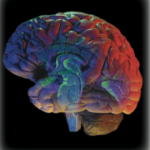Natural Hormone Balancing
-

How you age is up to you, mostly.
What are bioidentical hormones? Bioidentical hormones are hormones that are produced in a laboratory to resemble closely natural hormones found in the body. Common courses of natural hormones are soy and wild yam; but these foods need to be biochemically altered in the laboratory so that they are absorbable by the person. Bioidentical hormones are therefore not natural.
-
What are bioidentical hormone side effects?The side effects may range from mood changes, to fluid accumulation, acne, skin changes and others.
-
Can a person increase their bodies own production of natural hormones? Yes, rigorous exercise for example will dramatically increase the adrenal hormone DHEA an testosterone. Growth hormone, as well as many other hormones, can be increase and rebalanced by careful dietary and nutritional supplements. It’s always best to fix your hormones if possible rather than consuming “natural’-synthetic” hormones because they are not made in your body.
Success Story:

Age right with natural hormones
Bio-identical Hormone Health Plan
Dr. Wald provides a comprehensive and individualized approach using bio-identical hormones
- Bio-identical hormones are identical to those made by the body and are synthetic (made in a laboratory). It is a misconception that plants contain “natural” hormones; plants DO contain hormone-like chemicals that are often used as “starting chemicals” when bio-identical hormones are produced in the laboratory. The human body is unable to convert hormone-like chemicals in plants such as soy and wild yams to active hormones. Hormones used by conventional OBs, internist and endocrinologists are also synthetic, but are very different structurally from those made endogenously (in the body). Bio-identical hormones are easily recognized by the body and are thought to carry far less risk of hormone related cancers compared to synthetic, non-bio-identical hormones.
Our office utilizes several important tests for determining the best balance of bio-identical hormones required. These important tests include:
-
Certain blood hormone levels
-
Specific saliva hormone measurements
-
Urine measurements of estrogen metabolites
-
Non-hormone nutritional and other laboratory tests that evaluate various body processes that determine directly or indirectly hormone need, use and overall balance
-
Importantly, questionnaires that focus in on hormonal needs, including deficiencies and excesses, may be more so, or at least as revealing if not supportive, of laboratory hormone levels. Hormone levels in blood and saliva are often not correlated with symptoms so a comprehensive approach to hormone management is the ideal recommendation.
It is the combination of these tests that give the most comprehensive assessment of hormone levels, relative use by body tissues in need and potential cancer risk (Yes! Even natural hormones may increase cancer risk in a given individual).

Synthetic hormones have been linked to cancer in some studies.
Reference below begins with: Oral contraceptive use is a well-established risk factor for breast cancer and is common among reproductive-aged women in the USA.
Horm Cancer. 2019 Apr 15. doi: 10.1007/s12672-019-00362-5. Recent Use of Oral Contraceptives and Risk of Luminal B, Triple-Negative, and HER2-Overexpressing Breast Cancer. Lorona NC1,2, Cook LS3, Tang MC4, Hill DA3, Wiggins CL3, Li CI4,5.
-
Thank you for consulting our scientific reference section. Below is just a small sample of the supportive studies regarding your particular area of interest. Studies may be directly or indirectly related to this area of health care.
-
We pride ourselves upon “thinking outside of the box” such that we base much of our wellness approaches upon a scientific evidence base. It is important for you to realize that the references below are not provided to necessarily support the particular approach described within this section of our website. If you would like further evidence or support or simply have questions please feel free to email us directly at: www.info@intmedny.com or call us at 914-552-1442.
-
Thank you for consulting our scientific reference section. Below is just a small sample of the supportive studies regarding your particular area of interest. Studies may be directly or indirectly related to this area of health care.
-
We pride ourselves upon “thinking outside of the box” such that we base much of our wellness approaches upon a scientific evidence base. It is important for you to realize that the references below are not provided to necessarily support the particular approach described within this section of our website. If you would like further evidence or support or simply have questions please feel free to email us directly at: www.info@intmedny.com or call us at 94-242-8844 (Ext. 1).
-
http://www.ncbi.nlm.nih.gov/pubmed/8865138 – it is concluded that hormone replacement therapy, with estrogens alone or estrogens combined with progestins, may have important effects on the risk of cancer, particularly in the breast and endometrium. Therefore, when making a risk-benefit assessment of long-term HRT, possible risk relationships should be considered.
-
http://www.ncbi.nlm.nih.gov/pubmed/21464264 – Bioidentical hormones that are approved by the FDA may be preferred over standard hormone replacement because of their physiologic benefits and safetyprofile.
-
http://www.ncbi.nlm.nih.gov/pubmed/17217322 – Bioidentical hormone preparations have demonstrated effectiveness in addressing menopausal symptoms. The author advocates for continued research on bioidentical hormones and concludes there is currently sufficient evidence to support their preferred use over that of their synthetic cousins.
http://www.ncbi.nlm.nih.gov/pubmed/12201829 – treatment with GH replacement therapy, improvements in QoL are observed and maintained long-term over several years. -
http://www.ncbi.nlm.nih.gov/pubmed/19020387 – Measurements of quality of life in patients with growth hormone deficiency.
-
http://www.ncbi.nlm.nih.gov/pubmed/21969523 – The presence of MetS (metabolic syndrome) in GHD may therefore contribute to the increased risk of cardiovascular morbidity and mortality found in these patients.
-
http://www.ncbi.nlm.nih.gov/pubmed/18537700 – Growth hormone and insulin-like growth factor-I as an endocrine axis in Alzheimer’s disease.
-
http://www.ncbi.nlm.nih.gov/pubmed/21865409 – Growth hormone therapy in adults with confirmed GH deficiency reduces weight and body fat, increases lean body mass and increases edema and joint stiffness. Most trials demonstrated improvement in quality of life measures.
-
http://www.ncbi.nlm.nih.gov/pubmed/15320746 – In terms of the mechanisms for the age-related impairment in bone formation, a deficiency in growth hormone (GH)/insulin-like growth factor (IGF) system that occurs with age has been proposed to play a major role.
-
http://www.ncbi.nlm.nih.gov/pubmed/20930497 – GH/IGF-I axis is involved in the regulation of brain growth, development, and metabolism. Dysfunctions in GH/IGF-I axis in most of ND are therefore reviewed.
-
http://www.ncbi.nlm.nih.gov/pubmed/22023735 – The pilot study showed that combined treatment with an oral testosterone and a supplement drink was well tolerated and safe, and reduced the number of people hospitalised and duration of hospital admissions in undernourished, community dwelling older people.
-
http://www.ncbi.nlm.nih.gov/pubmed/21797916 – Testosterone appears to maintain insulin sensitivity in normal men.
-
http://www.ncbi.nlm.nih.gov/pubmed/12425705 – In this study, GH with or without sex steroids in healthy, aged women and men increased LBM and decreased fat mass.
-
http://www.ncbi.nlm.nih.gov/pubmed/19602554 – GH administration to healthy older individuals for 6 months increased insulin resistance with moderately beneficial effects on lipids.
 Previous Post
Previous Post Next Post
Next Post